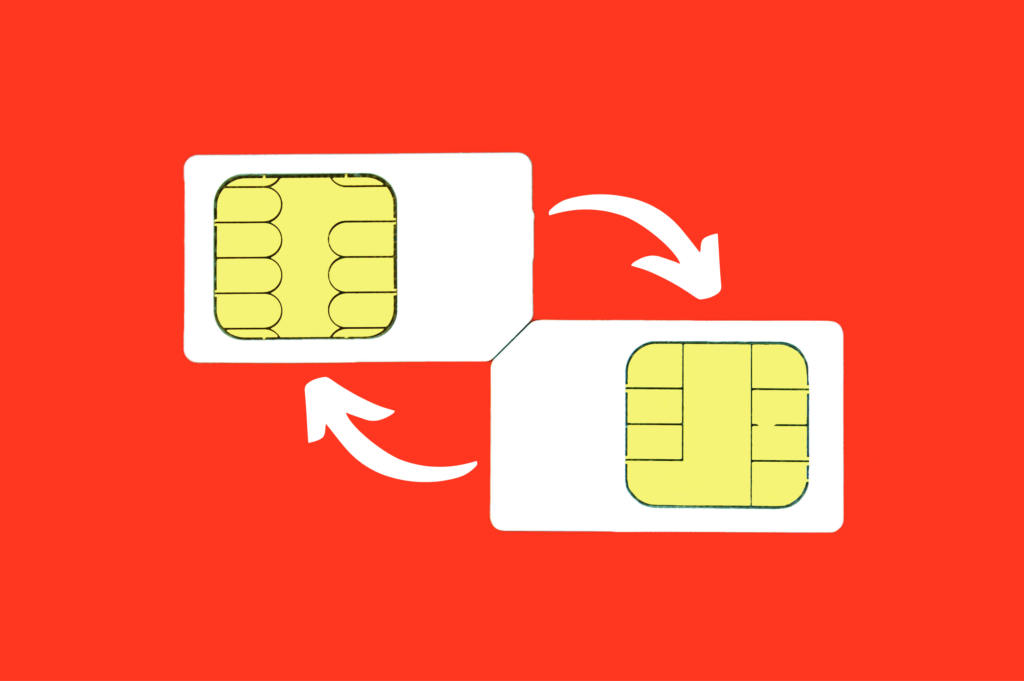Common Mobile Phone Scams and How to Avoid Them
- admin
- February 9, 2024
- 1:22 pm
- No Comments

In the UK, there has been an increase in mobile phone frauds. Criminals are becoming increasingly inventive in their methods of taking advantage of mobile consumers, including smishing, wangiri fraud, fake support calls, Ai voice calls and more. A lot of these scams try to obtain your financial and personal information or force you to sign up for services against your will.
It’s important to educate yourself on the latest mobile phone scam techniques so you can avoid falling victim. In this comprehensive guide, we’ll cover the most prevalent types of mobile phone scams hitting UK consumers right now and provide advice on how to protect yourself.
Here are the mobile scams hitting people in the UK we will cover:
- Smishing – SMS Phishing Scams
- Wangiri Fraud – The ‘One Ring’ Phone Scam
- Fraudulent Phone Charges and Subscriptions
- Robocall Scams
- SIM Swap Scams
- Fake Mobile Tech Support Scams
- Ai Voice Call Scams
Knowledge is power when it comes to identifying and stopping these increasingly sophisticated phone scams. Let’s dive in so you can keep yourself and your finances safe.
Smishing - SMS Phishing Scams
One of the most common mobile phone scams right now is “smishing”. These are just phishing scams done through text message instead of email.
These texts frequently pose as communication from reputable businesses or organisations, such as your bank, a delivery service, or a government organisation. The message will typically include alarming or urgent language intended to make you act fast, as well as a link for you to click on to provide personal information.
Some examples are:
- A text message stating that your bank account has been the subject of suspicious activity, along with a link to “secure your account” by providing your login information.
- A text that there is a shipping problem with a package delivery, with a link to reschedule the delivery by entering personal details.
- A text stating you must pay an outstanding tax bill immediately and by clicking through you can enter your information to resolve it.
You can identify smishing by looking for the following:
- Poor grammar and spelling errors – Legitimate companies put care into their messages.
- Unknown links – Hover over any link to see the actual URL destination, which may be unfamiliar.
- Sense of urgency – Scams want you to act before thinking to bypass scrutiny.
- Requests for sensitive information – No legitimate company will request your password, social security number, or bank details over text.
If you receive a suspicious text like this, avoid clicking any links and contact the company directly through their official website or phone number.

Wangiri Fraud - The 'One Ring' Phone Scam
Another common phone scam to be aware of is called wangiri fraud, which is also known as the “one ring” scam.
Here’s how it works – you receive a call on your mobile that only rings once before disconnecting. You see a missed call from an international or unfamiliar number. Since it rang only once before hanging up, you’re curious about who it was so you call the number back.
Little do you know, this brief one ring call was intended to get you to call back a premium rate international number, often owned by criminals. Even if the call only lasts a few seconds before disconnecting, you are charged an exorbitant fee for dialing the number back – sometimes as high as over £20!
The number may also continue to call you repeatedly, hoping you’ll take the bait each time and rack up charges. Because the original call rings so briefly, you don’t have time to recognise that it’s a suspicious number before calling back.
To avoid falling for the one ring scam:
- Be suspicious of any international or unfamiliar numbers.
- Don’t call back numbers you don’t recognise, even if they call repeatedly.
- If you do answer, hang up immediately if there’s silence, strange noises, or a recorded message.
- Check your phone bill carefully for any alarming international call charges.
- Contact your mobile carrier to report wangiri fraud charges so they can block the numbers.
Staying cautious and avoiding calls back to unknown numbers is key to not getting hooked by these wangiri scammers.
Fraudulent Phone Charges and Subscriptions
Another common mobile phone scam technique is illegally signing people up for premium rate text message services without consent. You may all of a sudden notice extra charges on your mobile phone bill for text message subscription services that you never signed up for.
Here’s how it happens:
- You enter a phone number on a website or in an ad online without realising it will subscribe you to expensive text services.
- Scammers obtain your phone number then automatically sign it up to start receiving and being charged for text messages.
- The third-party texting charges are often buried deep in your phone bill and easy to miss.
These unauthorised subscriptions can cost you up to £4.50 per text received! Most people don’t notice until they’ve already been charged for hundreds of messages.
To avoid falling victim to unauthorised mobile subscriptions and charges:
- Carefully scrutinise your mobile phone bill each month for any suspicious, unfamiliar charges. Don’t just look at the total – review line items.
- Make sure you read the fine print before entering your phone number anywhere online. Avoid entering it unless necessary.
- Contact your mobile provider immediately if you see any unauthorised subscriptions or premium texting charges. Demand they are removed and refunded.
- Consider adding text message blocking through your carrier if you don’t want to receive any premium texts.
With vigilance each billing cycle and caution where you enter your phone number, you can avoid getting scammed into paying for services you never asked for.

Robocall Scams
Robocalls take advantage of autodialing technology to make recorded phone calls to consumers at scale. While not inherently scammy, robocalls are frequently used by scammers to cast a wide net for victims.
Common types robocall scams include:
- IRS scams - A recorded message threatens you with arrest, lawsuit, or other trouble if you don’t pay alleged back taxes or fines.
- Vacation and prize scams - A message says you won a free trip or prize, but you must pay fees or give personal information to claim it.
- Warranty and protection plans - Robocalls falsely claim your auto or medical insurance is expiring to get you to enroll in overpriced, useless add-on plans.
- Tech support scams - Messages pretend there are issues like viruses detected on your computer and direct you to manipulative scammers posing as tech support.
You can identify Robocalls by doing the following:
- Let unknown numbers go to voicemail so robocalls can be screened.
- Beware calls from unusual numbers, especially overseas. Many robocalls spoof local area codes to seem familiar.
- Don’t press buttons or follow prompts, even if asked to press 2 to opt out. This signals you’re a real person.
- Hang up immediately if the recorded message asks you to pay by wire transfer, prepaid debit card, or other unusual methods. Real companies don’t do this.
- Report scam robocalls to the FCA and your mobile carrier so they can be blocked in the future.
Robocall scams are on the rise, but with caution and awareness, you can avoid becoming a victim.
SIM Swap Scams
A SIM swap scam is when a criminal fraudulently transfers your mobile number onto a SIM card they control. This gives them access to your calls, texts, and also allows them to bypass two-factor authentication on your other online accounts.
Here is how a SIM swap scam typically operates:
The scammer contacts your mobile carrier pretending to be you, and requests to swap your phone number to a new SIM card.
Because of social engineering or data breaches, they are able to provide enough personal details to complete the SIM swap.
Your phone suddenly loses service as the number is transferred to the new SIM.
The scammer can now receive passwords reset to your number and drain your financial accounts that use SMS for two-factor authentication.
Here are some ways to recognise these attempts:
Watch out for unauthorised attempts to contact your carrier, and if your carrier offers passcodes, enable additional security measures.
Get in touch with your carrier right away if your cell service abruptly stops working to ensure that no unwanted SIM transfers have taken place.
Use a security key that cannot be SIM-swapped or an authenticator app instead of SMS-based two-factor authentication.
To keep an eye on login attempts and get informed when a password is changed, set up account notifications.

Fake Mobile Tech Support Scams
Another mobile scam to watch out for is when fraudsters pretend to call from tech support regarding issues with your device or mobile carrier account. The goals are to trick you into paying for useless services or allowing the scammers remote access to your device and accounts.
These fake tech support calls often start the same way:
- The scammer already knows your phone number and other personal details to sound legitimate.
- They claim that viruses or other security threats have been detected on your device, or that your service is at risk of being disconnected.
- You are told the only way to resolve the issue is to provide remote access to your device and/or give payment information.
Red flags of a fake mobile tech support scam:
- They contacted you out of nowhere rather than you seeking out assistance.
- They ask for remote access to your device or pressure you to install software like TeamViewer.
- The call comes from an unknown number rather than your mobile carrier’s official support line.
- You are asked to pay fees in untraceable ways like gift cards. Real tech support does not do this.
If you receive a suspicious call like this, hang up. If you have concerns about your mobile service, call your carrier’s official support number to inquire – don’t give control of your device away to cold callers.
Legitimate tech support will never cold call, use pressure tactics, request remote access, or demand unusual payments. Be vigilant against tech support scams.
The Emerging Threat of Voice AI Scams
As voice AI technology advances, scammers are now harnessing it to create increasingly sophisticated social engineering scams targeting consumers.
Here’s how voice AI scams work:
- Scammers use voice cloning software to impersonate real people’s voices, like a CEO or other executive.
- They call employees within a company and use the impersonated voice plus personal details to request financial transfers or sensitive data.
- Because the voice sounds exactly like the real person, targets are more likely to comply without scrutiny.
Some examples of how voice AI scams are executed:
- A fraudster clones a CEO’s voice to call the accountant and urgently request a large wire transfer.
- A scammer imitates a bank customer’s voice to call the bank and transfer funds or request private account details.
- Impersonated voices are used for ransomware demands or other extortion threats that seem more credible.
Red flags that a call may be a voice AI scam:
- The caller seems urgent or demands quick action before verifying identity.
- Requests are unusual or excessive given no prior notice or documentation.
- Caller ID appears spoofed and doesn’t match who the caller claims to be.
- The voice sounds choppy or digitised at parts, especially with longer sentences.
As this technology develops, consumers must be vigilant about calls from executives or acquaintances requesting substantial favours or payments. Take time to verify before complying with anything suspicious.

Top Tips to Protect Yourself from Mobile Scams
- Don’t answer calls from unknown or suspicious numbers. Let them go to voicemail.
- Enable call blocking features through your mobile carrier and any anti-spam apps. This prevents many scam calls from ringing through.
- Avoid clicking on links in text messages unless you specifically signed up for alerts from the company sending it. Verify links first.
- Carefully review all charges on your mobile bill each month to identify any unauthorised subscriptions or fees.
- Never give out personal, banking, or verification information over the phone if an unknown caller requests it.
- Secure your accounts with app-based two-factor authentication instead of less secure SMS-based verification.
- Report any scams to Action Fraud UK and your mobile carrier immediately so they can be aware and block numbers.
- Change passwords that may have been compromised and monitor accounts closely for suspicious activity.


